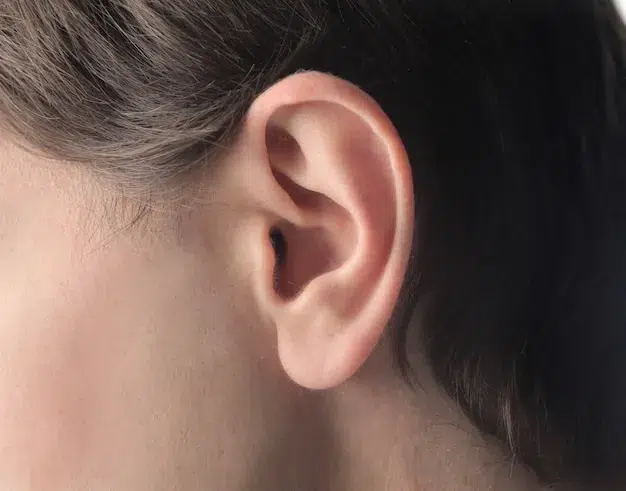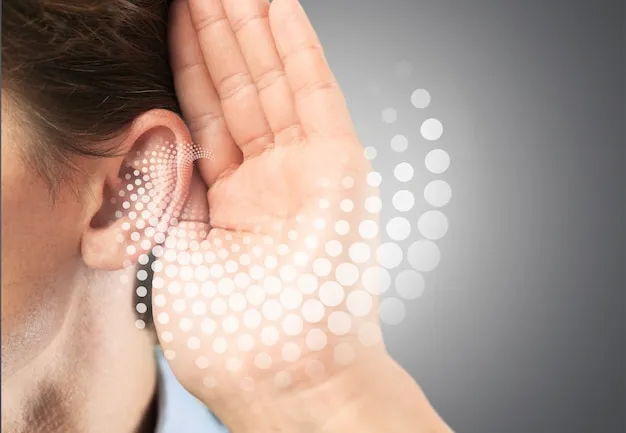Tinnitus, often described as a ringing in the ears, is an issue that many people find bothersome and sometimes hard to handle. Penn Medicine Becker ENT & Allergy provides expert advice for understanding tinnitus and presents useful methods to lessen its effects on everyday living.
We focus on a range of strategies that include medical options, changes in daily habits, the use of sound technology, and mindfulness techniques. Our goal is to equip those suffering from tinnitus with the means to manage their symptoms better. By adopting these measures, you may notice an improvement in your quality of life.

Finding Relief from Tinnitus
- Tinnitus, often described as ringing in the ears, can be managed through various strategies, though it’s not always curable.
- Sound therapy, which involves masking the tinnitus noise with more pleasant sounds, is a common method for relief.
- Stress management techniques, such as meditation or yoga, can reduce the severity of tinnitus by lowering stress levels.
- Avoiding loud noises and using protective earplugs can prevent tinnitus from worsening.
- Consultation with a healthcare professional is recommended to explore treatment options tailored to your specific tinnitus situation.
Understanding Tinnitus: The Problem and Potential Solutions
Tinnitus is when you hear noise or ringing in your ears but there’s no external sound causing it. It can manifest as either pulsatile tinnitus, where the noise beats in time with your heart, or chronic tinnitus, which persists over time. This condition often stems from problems with hearing, positioning individuals exposed to loud noises without ear protection or those with health conditions affecting hearing at a heightened risk for tinnitus.
The approach to managing tinnitus focuses on identifying and addressing the underlying cause. Strategies include:
- Utilizing hearing aids for tinnitus linked to hearing loss
- Trying sound therapy to mask the ringing
- Implementing lifestyle changes to mitigate its impact on daily life
The Impact of Tinnitus on Daily Life

Tinnitus is a common symptom that many people experience. It can really affect how you go about your day and your overall quality of life. Those living with tinnitus might find it hard to focus, talk to others, or even get a good night’s rest.
This article talks about ways to find relief from tinnitus in hopes of making daily life better for those dealing with it. Improving the quality of life for individuals facing this challenge is vital for their overall happiness and well-being.
Secure Your Safe Treatment Experience with PennMedicine
Join our satisfied clients who’ve experienced safe, effective treatments.
Step 1: Identifying the Cause of Your Tinnitus
Consultation with an Audiologist or ENT Specialist
Finding out why you have tinnitus is very important. You will start by meeting with an audiologist or an ENT specialist. They will look closely at your situation, paying special attention to any health conditions that might be causing your tinnitus.
Common Causes and Triggers
People with tinnitus may notice it comes from a variety of medical conditions. For instance, cervical spine conditions involve neck injuries, while a neurological condition affects how the brain perceives sound. It’s essential to know the underlying condition for effective treatment. People with tinnitus will also discover certain triggers that can make their symptoms worse, depending on their individual health landscape.
Step 2: Exploring Medical Treatment Options
While no single approach promises a cure for tinnitus, a combination of therapies offers relief and manages symptoms effectively.
- Medication Options: Although no medication exists that can cure tinnitus, some drugs can help manage severe symptoms, focusing on easing the discomfort.
- Hearing Aids and Sound Therapy: Sound therapy, utilizing external sounds, alters the perception or reaction to tinnitus. Hearing aids equipped with sound therapy features are beneficial, especially for people with hearing loss
- Cognitive Behavioral Therapy (CBT) for Tinnitus Management: CBT, a form of behavioral therapy, effectively treats tinnitus by changing the patient’s response to it. This treatment aims at reducing distress and improving the quality of life by focusing on the mental and emotional aspects of tinnitus.
Step 3: Implementing Lifestyle Changes
Making several lifestyle changes can be significant in managing tinnitus. These changes not only improve your overall health but can also specifically target tinnitus symptoms.
- Diet and Exercise: Incorporating a healthy diet and regular exercise into your daily routine can be crucial. Exercise, in particular, plays a role in the prevention of tinnitus by managing stress, a common trigger for this condition.
- Stress Reduction Techniques: Adopting stress reduction techniques such as meditation, yoga, or deep-breathing exercises can help lower stress levels. By keeping your mind calm and relaxed, you might find relief from the severity of tinnitus symptoms.
- Protecting Your Ears from Further Damage: To prevent exacerbating tinnitus, it is important to use ear hearing protection in environments with loud noise. Custom hearing protection, tailored to fit your ears, offers comfort while effectively safeguarding against harmful sound levels.
Step 4: Utilizing Sound Masking Devices
Types of Sound Masking Devices
Sound masking devices significantly ease tinnitus symptoms. A widely utilized option is the white noise machine, known for its ability to emit a consistent, subtle sound masking the ear ringing. Another helpful tool, especially for nighttime use, is a noise machine with pillow speakers, providing personal comfort without disturbing anyone else.
How to Use Them Effectively
To maximize benefits:
- During the day, keep a white noise machine readily accessible.
- For nighttime struggles, consider using a machine with pillow speakers, adjusting the volume to a comfortable level that masks tinnitus without being overly loud.
- Experiment with different sounds, such as rain, ocean waves, or plain white noise, to find what best camouflages your tinnitus. The goal is to make the ringing less distinct by closely matching it with the surrounding sound environment.
Step 5: Practicing Mindfulness and Meditation
Benefits of Mindfulness for Tinnitus
Mindfulness can help reduce the perception of ringing sounds and improve overall quality of life for those with tinnitus. This approach involves relaxation therapy, which allows individuals to focus on the present moment. This can lower stress and anxiety often linked with tinnitus.
Simple Meditation Techniques for Beginners
Starting with short meditation periods can be beneficial for beginners dealing with tinnitus. Using guided imagery, concentrating on breathing, or doing body scans are good first steps. These techniques promote relaxation and mindfulness, key in managing tinnitus symptoms.
Additional Advice: Managing Tinnitus in Quiet Environments
Creating a Sound-Rich Environment at Home
Creating a sound-rich environment at home is a practical step to mitigate the effects of tinnitus. One way to achieve this is by using an air conditioner, which maintains a consistent and gentle background noise. This method effectively reduces the impact of loud noises by keeping the noise level in your environment controlled, offering a form of relief.
Nighttime Strategies for Better Sleep
For better sleep at night, playing soft music or using ambient sound machines can help mask the sounds of tinnitus. Additionally, utilizing an air conditioner to keep the room cool can aid in sleep quality. The consistent noise level it provides helps minimize the disturbance of sudden loud noises, promoting a more restful night’s sleep.
Precautions: What to Avoid
Medications and Substances That May Worsen Tinnitus
Some drugs can make tinnitus worse. This includes certain over-the-counter pain relievers and prescription medications. It’s important to talk to a healthcare provider about which medications to avoid.
Activities and Environments to Avoid
Staying away from loud sounds is key to managing tinnitus. It’s especially crucial to avoid loud noise exposure in places with high noise levels. Prolonged exposure to noise can seriously harm your ears and make tinnitus symptoms more severe.
Expected Outcome: Achieving Relief and Improving Quality of Life
Setting Realistic Expectations
Knowing that tinnitus is a chronic condition helps in setting realistic expectations. Immediate relief may be tempting, but the real benefit comes from a consistent approach. By aiming for attainable goals, individuals can improve their quality of life.
Long-Term Management Strategies
For those dealing with this persistent condition, adopting long-term management strategies is important. These methods offer a way to cope and lead to a deeper understanding of the condition. By adopting these strategies, daily life can become more manageable and outlooks more positive.
If you’re dealing with tinnitus, getting help from specialists is important. Penn Medicine Becker ENT & Allergy offers expert ear, nose, and throat care, including treatments for tinnitus. They focus on personal care, with a team dedicated to enhancing your life through tailored treatment plans.
If tinnitus is impacting your daily life, consider reaching out to Penn Medicine Becker ENT & Allergy for a consultation. They are known for their commitment to great patient care, as shown by their excellent reviews across various locations.

